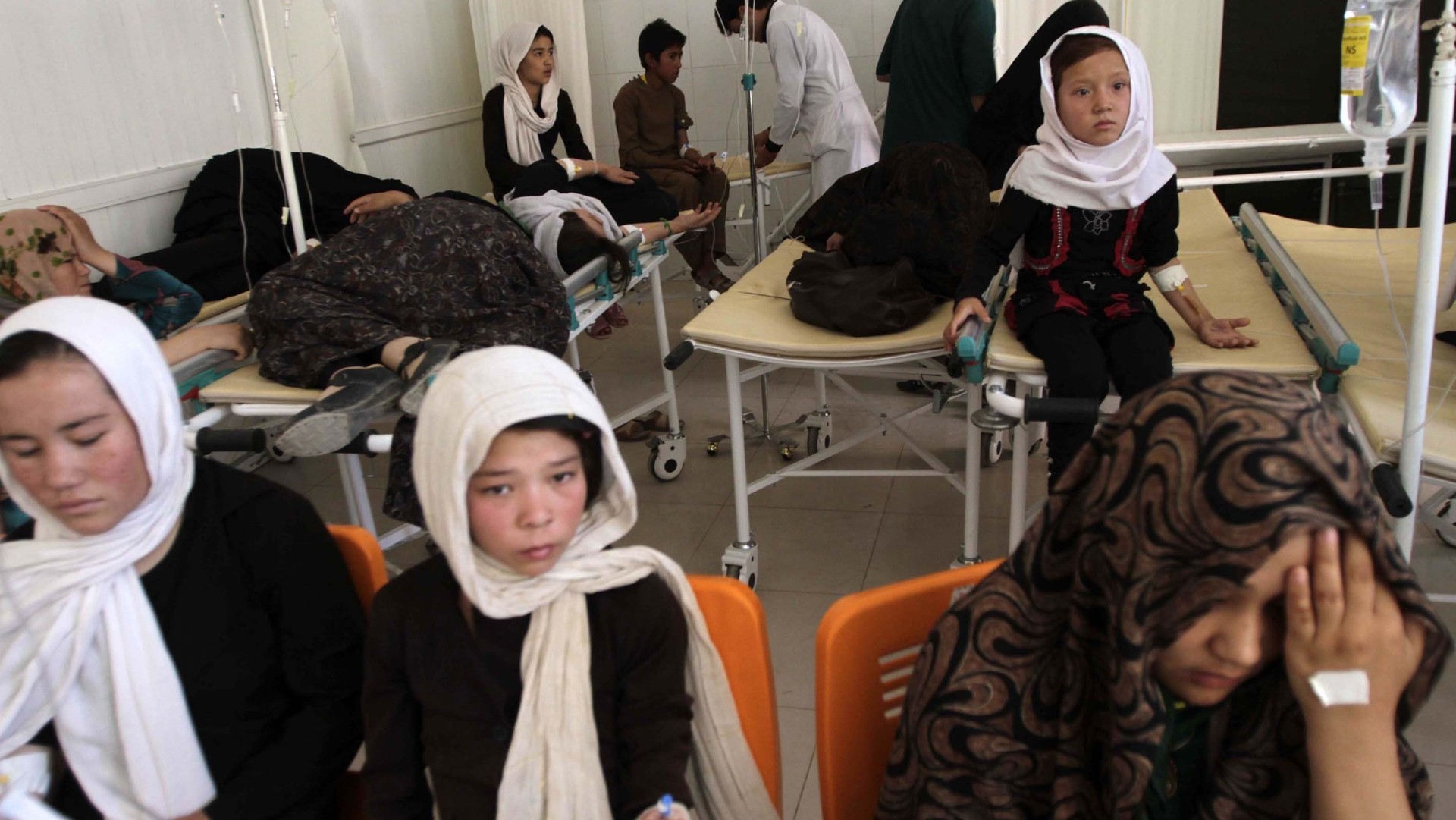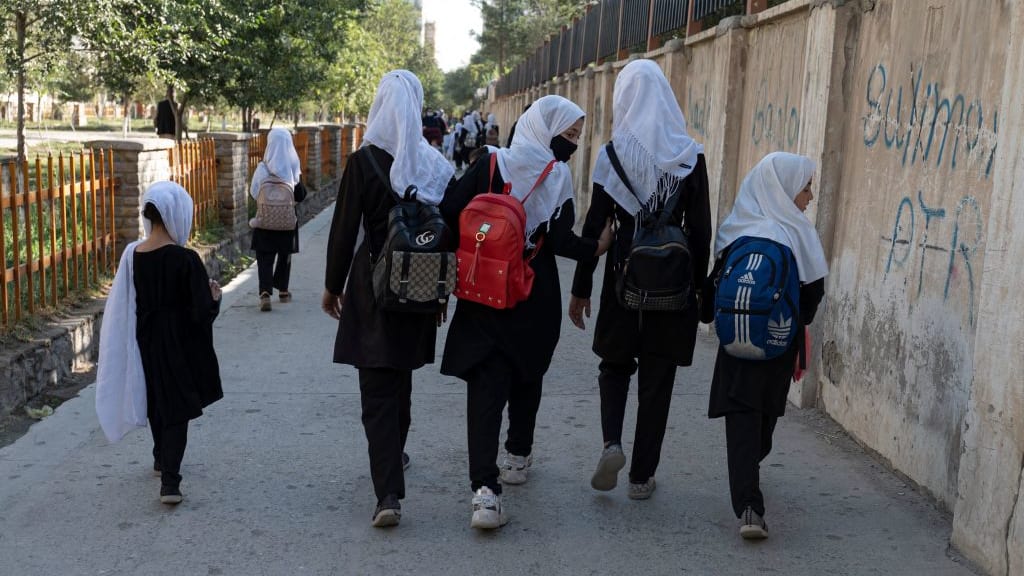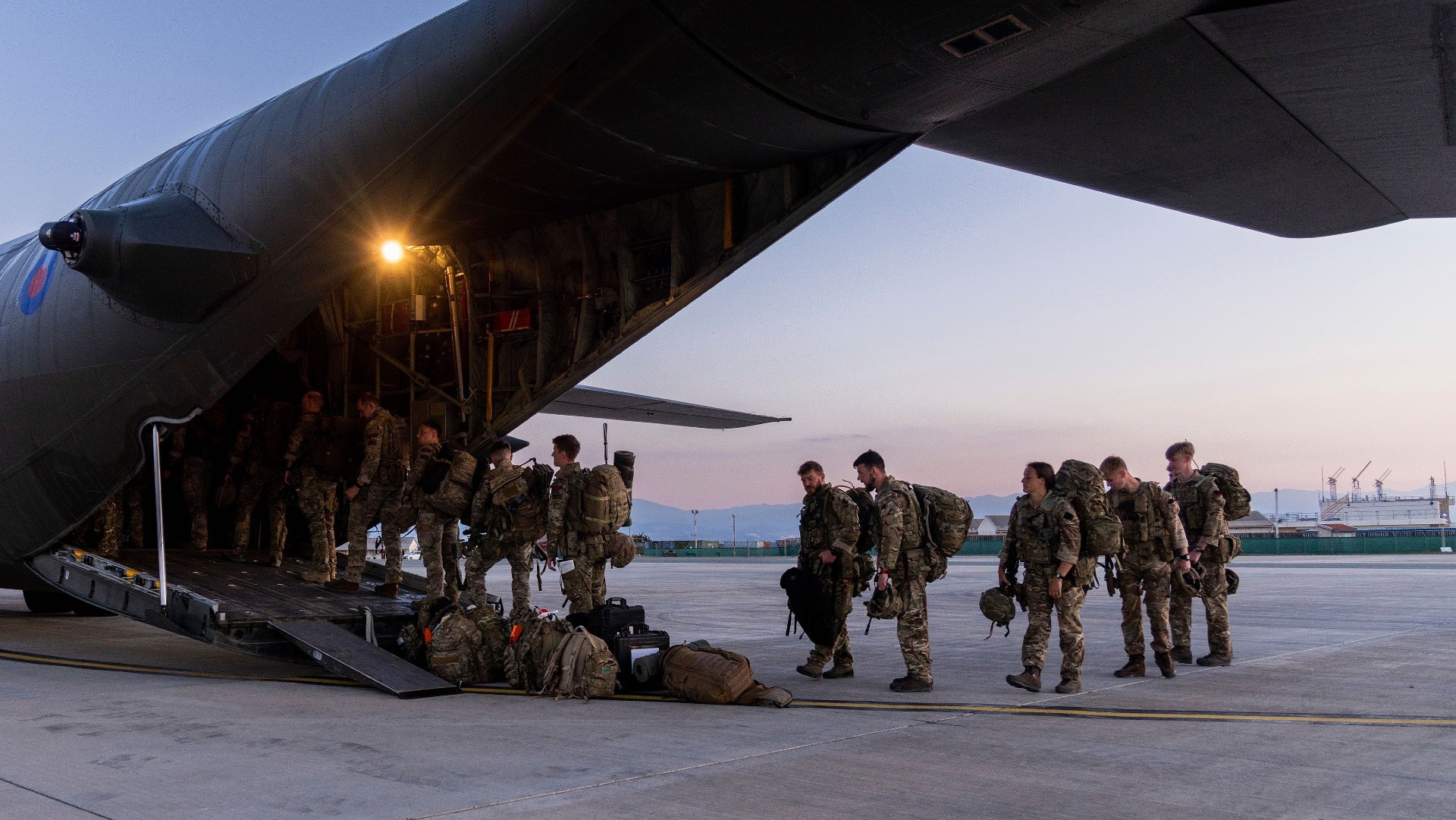‘Content warnings mean classics is apologising for its existence’
Your digest of analysis and commentary from the British and international press

- 1. The woke war on our classical past is as lazy as it is wrong-headed
- 2. How social media helped the tech-savvy Taliban retake Afghanistan
- 3. UK truck driver shortage signals a broken labour market
- 4. The Afghanistan crisis has exposed Global Britain’s delusions of grandeur
- 5. Can facial recognition be stopped?
A free daily email with the biggest news stories of the day – and the best features from TheWeek.com
You are now subscribed
Your newsletter sign-up was successful
1. The woke war on our classical past is as lazy as it is wrong-headed
Marie Daouda in The Telegraph
on modern sensibilities
“Cambridge University’s archaeology museum has decided to put up signs explaining the ‘whiteness’ of its plaster casts collections,” Marie Daouda wrote in The Telegraph. “This is to avoid giving the ‘misleading impression’ that Greek and Roman society suffered from an ‘absence of diversity’,” she explained. “One might well wonder what will be written on the signs: ‘The Romans and Greeks were, in fact, not all greyish-white with rigid faces and blank eyes’,” she said. “Concern about diversity in classics has become a prominent question in higher education in recent years,” but “putting content warnings on Greek or Roman literature, or adding awkward explanations about the whiteness of plaster, only gives the impression that the classics are apologising for their very existence”.
The Week
Escape your echo chamber. Get the facts behind the news, plus analysis from multiple perspectives.

Sign up for The Week's Free Newsletters
From our morning news briefing to a weekly Good News Newsletter, get the best of The Week delivered directly to your inbox.
From our morning news briefing to a weekly Good News Newsletter, get the best of The Week delivered directly to your inbox.
2. How social media helped the tech-savvy Taliban retake Afghanistan
Weeda Mehran in The Guardian
on online propaganda
While many factors contributed to the Taliban’s rapid takeover of Afghanistan, “notable among them was a successful modern media strategy”, said Weeda Mehran in The Guardian. The modernisation of the country’s infrastructure has “proved a great boon to the Islamist group”, with the majority of the country now able to access the internet through mobile phones – “dramatically increasing the in-country reach of online Taliban propaganda and recruitment materials”. The Taliban has had a successful media strategy over the past two decades because it has been able “to get out their message faster than their enemies. They managed to publish their side of the story much earlier than the Afghan government and international forces could process theirs through bureaucratic channels.”
A free daily email with the biggest news stories of the day – and the best features from TheWeek.com
3. UK truck driver shortage signals a broken labour market
Sarah O’Connor in the Financial Times
on an invisible workforce
“A shortage of truck drivers has led to empty shelves in British supermarkets,” wrote Sarah O’Connor in the Financial Times. “There is even talk of the army being called in to help. For those who wanted the UK to remain in the EU, it feels like a moment to say: ‘We told you so, Brexit was a disaster’,” she said. “But that misses the point. The empty shelves are a visible message from a workforce that’s usually invisible. They tell a story about what’s gone wrong in this corner of the 21st-century economy – and not just in the UK.” Indeed, the shortages are “a moment of reckoning”, said O’Connor. “If we just use them to bicker about Brexit, we’ll drown out the real lessons in the noise.”
4. The Afghanistan crisis has exposed Global Britain’s delusions of grandeur
Peter Ricketts in the New Statesman
on an ‘act of betrayal’
“The bewilderment on the faces of Prime Minister Boris Johnson and Foreign Secretary Dominic Raab during Westminster’s parliamentary debate over Afghanistan on 18 August was telling,” said Peter Ricketts in the New Statesman. The two “seemed stunned by the anger at government impotence and complacency that erupted on the Tory benches”. Their response was “yet further indication that neither Johnson nor Raab has the slightest affinity with the military world and the values that underpin it” and “they seem to have failed to comprehend that, for many people, abandoning Afghanistan in such a manner is an act of betrayal that besmirches British honour”. The Afghanistan crisis “has exposed in detail the delusions of grandeur that have passed for British foreign policy in recent years. It is time at last to define our priorities clearly and pursue them relentlessly.”
5. Can facial recognition be stopped?
Ben Kelly in The Spectator
on sinister technology
“In recent years, facial recognition technology has been introduced into our lives in various benign ways,” Ben Kelly said in The Spectator. “The ease of using it to unlock our phones, make purchases, replace passwords, and manage our digital wallets is irresistible,” he went on. “Unfortunately, our love of convenience may be distracting us from the fact that facial recognition technology is the most sinister and uniquely dangerous surveillance mechanism yet invented.” In fact, “as it increasingly plays a central role in our lives, we are being lulled into accepting its use by the police. And if it is not resisted now, it will become a ubiquitous part of the security apparatus.”
-
 Tourangelle-style pork with prunes recipe
Tourangelle-style pork with prunes recipeThe Week Recommends This traditional, rustic dish is a French classic
-
 The Epstein files: glimpses of a deeply disturbing world
The Epstein files: glimpses of a deeply disturbing worldIn the Spotlight Trove of released documents paint a picture of depravity and privilege in which men hold the cards, and women are powerless or peripheral
-
 Jeff Bezos: cutting the legs off The Washington Post
Jeff Bezos: cutting the legs off The Washington PostIn the Spotlight A stalwart of American journalism is a shadow of itself after swingeing cuts by its billionaire owner
-
 ‘We should be scared’: the poisoning of schoolgirls in Afghanistan
‘We should be scared’: the poisoning of schoolgirls in Afghanistanfeature Children hospitalised in allegedly deliberate mass attacks is latest in series of incidents going back decades
-
 Boris Johnson shocks UK by resigning from Parliament
Boris Johnson shocks UK by resigning from ParliamentSpeed Read
-
 Officials believe dozens of girls in Afghanistan were deliberately poisoned at school
Officials believe dozens of girls in Afghanistan were deliberately poisoned at schoolSpeed Read
-
 Bees delay flight for three hours
Bees delay flight for three hoursfeature And other stories from the stranger side of life
-
 Taliban kills mastermind of Kabul airport suicide bombing
Taliban kills mastermind of Kabul airport suicide bombingSpeed Read
-
 Sudan evacuation: has Foreign Office learnt the lessons from Afghanistan?
Sudan evacuation: has Foreign Office learnt the lessons from Afghanistan?Today's Big Question Failings of chaotic withdrawal from Kabul prompt return of foreign secretary and airlift of Britons from Khartoum
-
 ‘The UK’s malaise will not end with the Prime Minister’s exit’
‘The UK’s malaise will not end with the Prime Minister’s exit’Instant Opinion Your digest of analysis from the British and international press
-
 ‘Police tactics are not getting worse, they are simply being filmed’
‘Police tactics are not getting worse, they are simply being filmed’Instant Opinion Your digest of analysis from the British and international press